|
‘It is not power that corrupts but fear. Fear of losing power corrupts those who wield it and fear of the scourge of power corrupts those who are subject to it.’ (Aung San Suu Kyi) I ran a 3-day workshop in the Philippines for students who were about to graduate from a university for the poor. As we talked about their role and career aspirations for the future, I invited them to do role-plays that would, I thought, enable them to prepare for interviews and increase their chances of success. They smiled, albeit kindly, at my naivety. In role play after role play, with typical Filipino creativity and playfulness, the students depicted scenarios in which getting a job had nothing to do with personal merit and everything to do with whom the applicant knows or is connected to, and what level of contribution for expenses (bribe) the applicant is willing and able to pay to those conducting the interviews and making the appointment decisions. I felt astonished and depressed. Endemic corruption saps the life and energy out of people and societies and deprives them of so much talent and potential. I was intrigued to explore this further so asked the students how much money they would need to pay to get a job. They responded that such forms of corruption are culturally-coded euphemistically so that, in effect, everyone knows what game is being played without anyone explicitly admitting it. For instance, if a student were to be invited to an interview at 2.00pm, it means they will need to pay 20k pesos. If at 4.00pm, then 40k pesos. If they don’t turn up with the required cash, or are not connected to a suitable sponsor, they will be offered a post-rationalisation (excuse) for their apparent failure. This encounter was certainly an eye-opener for me. We moved on to look at other ways in which corruption manifests itself in societies around the world; e.g. in payment of financial incentives (backhanders) to secure specific political policies, judicial outcomes or commercial contracts. Media manipulation, attacks on press freedom, silencing of political opponents, undermining of democratic structures and civil society, monopolisation of markets: all undermine social and economic accountability and opportunity. The biggest challenge when corruption becomes thoroughly pervasive is where and to whom to go to address it. Speaking truth to ourselves can be hard enough to endure. Speaking truth to power can lead to alienation…or to a bullet.
10 Comments
'95% of what we think we know, we have simply accepted from what other people have told us.' (Dennis Hiebert) Nothing adds up. How can we identify hidden assumptions, implicit agendas and vested interests that lay behind what we see, hear and read in the media? Perhaps the answer to this question has rarely been so critical. Democracy and social cohesion within and between peoples and nations are threatened by manipulation and misrepresentation of what we may ordinarily regard as truth. Following writer Mark Twain, actor Denzel Washington commented famously, ‘If you don’t read the news, you’re uninformed. If you do read the news, you’re misinformed.’ Take international news in the UK. Why are we so focused on Russia-Ukraine and Israel-Gaza? Why haven’t we noticed, apart from the occasional glance, the terrible civil wars in Sudan, Myanmar or Democratic Republic of Congo? Why do we call Russia’s brutal intervention in Ukraine a ‘full-scale invasion’? Why do we assume that increasing NATO size-spend is the only solution? If Israel’s bombing is indiscriminate, why has it killed, proportionately, so few ‘adult men’? Why didn’t we see outraged street demonstrations against horrific, widespread atrocities by Daesh? These are profoundly important, deeply complex and extremely painful issues and we rarely have access to the underlying research or information that could help us, as ordinary and concerned citizens of the world, to discern and decide how to act. We are presented with multiple, competing viewpoints and demands and this can feel both perplexing and paralysing. I don’t know the answers to such questions yet I do believe they should play at least some part in shaping my response. I will share some considerations that may help us to avoid sleepwalking blindness. As we’re exposed to news reports, what are we noticing and not noticing? How far does what we’re noticing appear to confirm what we already believe or want to believe? How open are we to having our assumptions, our preconceived beliefs and ideas, challenged to reveal something different or new? Why is the news presenter or media channel presenting this particular story or angle? What do they want us to believe, think, feel or do? Who or what is being excluded by the reporter’s narrative? Whose voice, perspective or experience is being ignored or filtered out? Behind the scenes: who owns and-or funds the media channel, the presented report or the research that underpins it? How rigorously are research methods tested to avoid implicit bias? Are views and experiences presented in a report genuinely representative of a wider and diverse population, or different sides to a conflict? In interpreting statistics, is a reporter presenting a case selectively, or cherry-picking results to show or advocate a particular stance? In short, be sceptical – and look for evidence that supports or contradicts the research-reporter’s ‘news’. ‘Votes are cast based on rational decisions, right?’ (Zaria Gorvett) As I watched the former leader of a very influential nation speak on TV last night with what came across (to me, at least) as a mishmash of delusions and mistruths, I felt, to put it mildly, both bemused and dismayed. This felt even more so because current polls in that country point to a distinct possibility, if not yet a probability, that that person could actually be re-elected to that position of power. I found myself asking myself, ‘What kind of craziness would compel people to vote for this person? How can’t they see through the nonsensical and narcissistic rhetoric?’ Shaking my head with a deep sigh, I got up to make a cup of tea. Suddenly (I don’t know if it was the caffeine), a revelation hit me. I flashed back to some years ago in Germany, watching a 1-hour interview with Angela Merkel on TV. She was at the height of her leadership that year and, to be honest, I could hardly understand a word she said. My German language skills simply weren't up to it. Yet, somehow…I found her absolutely mesmerising. Something about her style, presence and tone subtly seduced me. I would have voted for her. I would have married her! Maybe. This took me back, next, to the Brexit-EU psychodrama in the UK. At that time, arguments flew back and forth vociferously in favour of Leave or Remain. Little I heard on either side bore much resemblance to evidential reality. Noticeably, most people I spoke with voted on instinct, on gut-feel intuition, and were swayed little by spurious claims or counterclaims. Boris Johnson, who won that game (by a narrow margin), played subconsciously on cultural memories of Winston Churchill, the lone hero who stood alone against overwhelming internal and external odds. So, an ex-President, an ex-Bundeskanzlerin and an ex-Prime Minister. It's far more than the words they say. It’s what they symbolise and represent. It’s how they make people feel. ‘Never doubt that a small group of thoughtful, committed citizens can change the world; indeed, it's the only thing that ever has.’ (Margaret Mead) ‘520,000,000,000’. I wrote the number slowly…and…deliberately across the whiteboard at the front of the class. The students looked on, intrigued. I asked, ‘Who can guess what this number means?’ The playful ones quickly put their hands up: ‘The population of the world?’ ‘The distance to the moon?’ I responded, ‘The number of Pesos (= US $8 billion) that people across the world spend on skin-whitening products in one year.’ The room was filled with looks and sounds of astonishment now. The students had considered this as a private personal-relational issue rather than a global economic one. This was part of a 3-day workshop for student teachers and social workers – that is, key influencers for the future – in the Philippines. The first time I had arrived in the country, I had been naively taken aback when one of the people who greeted me apologised for their skin colour. My Filipina co-facilitator explained that this is a common phenomenon, where people evaluate themselves and are evaluated by others for how dark or light their skin is. The students went on to share heart-breaking personal testimonies of how far this has impacted their lives, prospects and sense of worth. They were very surprised to hear how much money, by contrast, people in wealthy countries spend on products, treatments and trips abroad to darken their skin. I took some skin-tanning lotion with me from the UK to show them – and they could hardly believe their eyes. We went on to consider the deep cultural drivers and diverse vested interests that lay behind the skin-whitening industry. The lively debate that ensued generated novel campaign ideas to address stakeholders (e.g. manufacturers; marketers; retailers; consumers), and its damaging spiritual, psychosocial and financial effects. ‘There are moments in history when a door for massive change opens, and great revolutions for good or evil spring up in the vacuum created by these openings. In these divine moments key men and women and even entire generations risk everything to become the hinge of history, the pivotal point that determines which way the door will swing.’ (Lou Engle) Some have asked, ‘What happened next..?’ after I shared some early experiences in my previous blog, ‘Against the grain’. Having recently become a follower of Jesus and a left-wing social-political activist, my first action back in the workplace was to tear down the explicit pornographic posters that totally covered the workshop walls. (To understand the impact of this, the shop floor of such industry at the time was a heavily male-dominated environment. In fact, there was only 1 female apprentice in my year of around 80. Against this backdrop, I imagined I would get lynched for this act.) When my work mates saw what I had done, however, they just asked in dismay, ‘Why have you done this?’ I replied simply and assertively that the posters were demeaning to women. Nobody spoke a word. Next, I created a petition to reform the trade union. I used every lunch break to travel to different industrial plant locations to invite colleagues to sign it. Almost everyone said they agreed with what I was doing and advocating. At the same time, however, many explained they felt afraid to sign it in case the union retaliated by dismissing them from membership. They therefore signed with disguised names that were barely legible. On learning of what I was doing, the local shop steward, as official representative for the union, demanded that I give him the petition. I refused and he became angry, warning me sternly that I was ‘playing with fire’. On handing the final petition to the site convenor, the highest trade union representative for that region, he too reacted with predictable outrage. I didn’t wait to be dismissed or sacked. I sensed God was calling me in a new direction so I handed in my resignation, 3 months before I was due to complete my 5 years of studies there, and moved to London instead to work as a Community Service Volunteer. On just £12 a week, my family and friends thought I had gone crazy or joined a cult. In this role, however, I worked alongside a radical Marxist community development worker as part of an innovative social work team and, in my spare time, as a volunteer with local Central American political and human rights organisations. This was a decisive turning point in my life and I have never looked back for a moment with regret for that decision. When I completed this assignment, I hitch-hiked to the Middle East to work in a hospital for the poor. But that’s another story… ‘Two roads diverged in a wood, and I — I took the one less travelled by.’ (Robert Frost) It was in a dark, cigarette smoke-filled pub one night. The trade union reps sat behind a long wooden table, cluttered with half-full beer glasses. We about-to-graduate apprentices sat opposite, waiting to be called forward. (It was in the days of closed shop when qualified trades people could only be employed if they held union membership). At the time, I supported the value of trade unions in principle, yet felt dismayed and disillusioned by the corruption that this source of power had created. I noticed my colleagues often lived in fear of the union rather than represented by it. If you said or did something that challenged or upset union leaders, you risked losing your union card and therefore your job. One by one, my fellow apprentices stepped up to the table. ‘Raise your right hand. Do you swear to abide by the rules of the trade union?’ ‘Yes.’ ‘OK, go and sit down.' My turn came. ‘Do you swear…?’ ‘No’, I replied. ‘I have no idea what the rules of the trade union are.’ The panel looked bemused. ‘You really want to read the whole rule book before you agree?’ ‘Yes’, I replied. The shop steward thrust a copy into my hands then ejected me forcefully from the meeting. ‘Wait outside until we call you back in.’ I skimmed through the book then, on return, insisted I was exempted from default political party contributions, as was my right according to the rules. They looked intensely frustrated but had to consent. I don’t think such encounters changed the trade union, but they did change me. Some months later, I was sent on a 2-week residential apprentices' programme that aimed to stimulate personal leadership qualities. I challenged the senior managers there with whom, providentially, I had opportunity to speak. ‘Why invest in this programme when the prevailing management behaviour in the workplace is so autocratic? We need to change culture, not just individuals’. They looked deeply uncomfortable yet I held my ground. (They had, after all, encouraged personal leadership). At the formal dinner of the final evening, they invited me to sit at the top table alongside the most senior leader for that region. I was learning to navigate my way through power structures and systems and to exercise personal and political agency. [See also: Pivotal points] ‘The map of the world is always changing; sometimes it happens overnight. All it takes is the blink of an eye, the squeeze of a trigger, a sudden gust of wind.’ (Anderson Cooper) I ordered a large and colourful map of South East Asia for my bedroom wall recently. When it arrived, it was subtly different to the one that had been advertised and clearly depicts a Chinese geopolitical view of the region. Taiwan is colour-coded the same as China and the internationally-disputed 9-dash line is boldly marked around the whole of the South China Sea. It struck me how simple representations on a map can both reveal and aim to create a very specific cultural and political view of the world. I have another large and colourful map of the Earth mounted on the wall above my desk. This one shows the world as ‘upside down’, although the names on the ‘countries’ are still written the ‘right way up’. It feels strange and disorientating to look at and reveals, experientially, how fixed we can become in the representations we hold of of the world we have been taught and learned since childhood. A world map is also a mental map. Every portrayal is an implicit human construct. Nothing is simply ‘how it is’. ‘We build too many walls and not enough bridges.’ (Isaac Newton) Travelling 33 kilometres from Münchberg in former West Germany to Mödlareuth at the edge of the former East, yesterday, felt like travelling 33 years back in time. The first occasion on which I had visited the Deutsche Demokratische Republik (DDR) was shortly after the infamous Berlin wall came down, and before the subsequent German reunification that confined the now-defunkt DDR to the history books. I was struck, then, by how colourful it was in the East, in contrast to the documentaries we saw on TV where it was almost invariably depicted in shades of drab grey, black and white. The next thing that struck me was how naïve I had been to imagine the East was really like that. Unlike most state boundaries around the world, the DDR’s border with its ominous walls, fences, watch towers, searchlights, minefields and patrols with dogs and guns at that time were designed primarily to keep the DDR’s own citizens in, rather than – like a former US President’s vision of his own big wall – to keep other people out. According to the Netflix documentary ‘Merkel’ (2022), former German Bundeskanzlerin Angela Merkel’s upbringing in and experience of living behind the DDR’s stretch of the iron curtain had a significant psychological influence on her resistance to hard borders in and around the European Union. The past has a way of playing itself out in the present. The parts of the East that I visited this week looked remarkably similar to how they did all those years ago. The physical border is gone, except in those places where remnants have been preserved to retain a sense of history-as-real and to educate intrigued visitors and tourists. The ongoing cultural differences and economic disparities between West and East, however, continue to have a marked influence on German politics. The pale-painted houses still look now as they did as before, some like symbols of a distant, decaying past that lost and never quite managed to recover and regain their former glory. The new cold war, gaining in foreboding heat, carries a disturbing resonance. ‘Start where you are. Use what you have. Do what you can.’ (Arthur Ashe) My first political act, with a capital P, was at the age of 14. I wrote to my MP (Member of Parliament) during the General Election that year to express my concern about the UK’s practice of retaining records that meant completed voting slips could be traced back to specific voters. It struck me as a profoundly anti-democratic practice, since a secret ballot was an important way of safeguarding freedom of political expression. My MP wrote back to explain that the practice was designed to track allegiance to extremist, anti-democratic far-right groups. That didn’t reassure me. Didn’t that mean we were adopting similarly anti-democratic practices too? He didn't respond. My next political act, this time with a small P, was to stand up in a Trade Union meeting, aged 19, in a packed town hall, and to challenge its politburo-style leadership. I was immediately shot down in flames by the enraged Union leader which, in spite of my trembling hands and voice as I spoke, simply confirmed my view that the Union had become thoroughly corrupt. It spurred me on to organise an organisation-wide petition aimed at reforming the Union by calling for a return to its political-ideological roots and values and to ensure greater fairness. I was confronted by apocalyptic warnings, by words like ‘you are playing with fire’, yet pressed on with the petition nonetheless. By age 22, my vision had turned international. I campaigned against the unspeakably violent actions of oppressive right-wing regimes in Central America that murdered the poor and vulnerable for daring to speak out. I was perplexed by the passivity or tacit collusion of those in power in the UK, US and beyond. Why weren’t we learning from history, from the sociopathic savagery of the Nazi regime through to the sick brutality of Vietnam? Why weren’t we more principled, more angry, more determined to stand up for what is right? I burned myself out with powerless passion. Yet learning to love would prove to be a harder challenge. The corruption I saw out there is also here in me. ‘Now let us begin. Now let us re-dedicate ourselves to the long and bitter, but beautiful, struggle for a new world.’ (Martin Luther King) Few songs convey the pain and potential consequences of protest like the Dixie Chicks’ (now Chicks’) ‘Not Ready to Make Nice’. Singer Natalie Mains had dared publicly to criticise the then-U.S. President, George W. Bush, during the 2003 run-up to the U.S.-led invasion of Iraq. The group was subsequently banned from being played on many U.S. radio stations and group members were subject to attacks on their character, and even to death threats. ‘Not Ready to Make Nice’ is a passionate reflection on that experience, a resounding spirit of unbroken resistance in a near-breaking voice: ‘Forgive, sounds good. Forget, I'm not sure I could. They say time heals everything, but I'm still waiting. I'm through with doubt. There's nothing left for me to figure out. I've paid a price, and I'll keep paying. I'm not ready to make nice, I'm not ready to back down. I'm still mad as hell, and I don't have time to go 'round and 'round and 'round. It's too late to make it right. I probably wouldn't if I could ‘cause I'm mad as hell. Can't bring myself to do what it is you think I should. I know you said, ‘Why can't you just get over it?’ It turned my whole world around – and I kinda like it. I made my bed, and I sleep like a baby with no regrets. And I don't mind saying it's a sad, sad story when a mother will teach her daughter that she ought to hate a perfect stranger. And how in the world can the words that I said send somebody so over the edge that they'd write me a letter saying that I better shut up and sing – or my life will be over?’ This experience reflects the spirit of an age in which we find ourselves too. Voices of dissent against a mainstream narrative are often heard with disdain, if at all, in the clamour of polarised and conflicting ideologies, opinions and rage. Platforms that could protect and promote democratic values, ranging from conventional and social media to schools and university campus’, all too often create echo chambers that reinforce the dominant view. Silence is golden. Silenced is not. When did you last speak up? What have you left unspoken that needs to be said? |
Nick WrightI'm a psychological coach, trainer and OD consultant. Curious to discover how can I help you? Get in touch! Like what you read? Simply enter your email address below to receive regular blog updates!
|
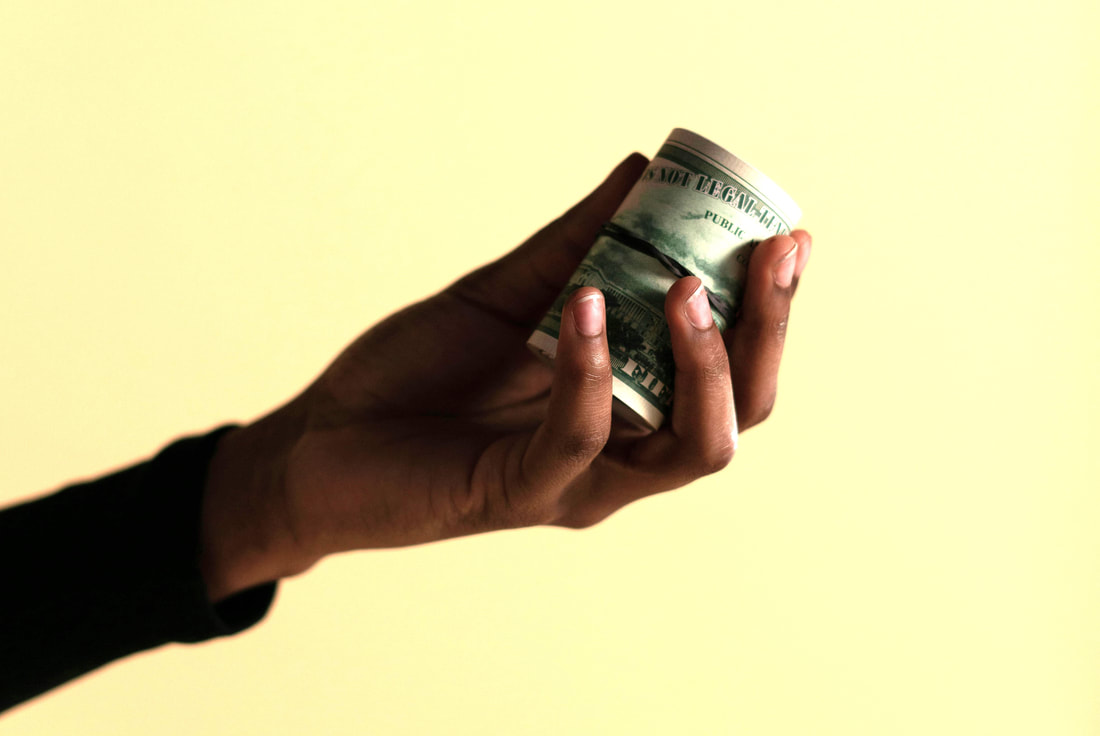
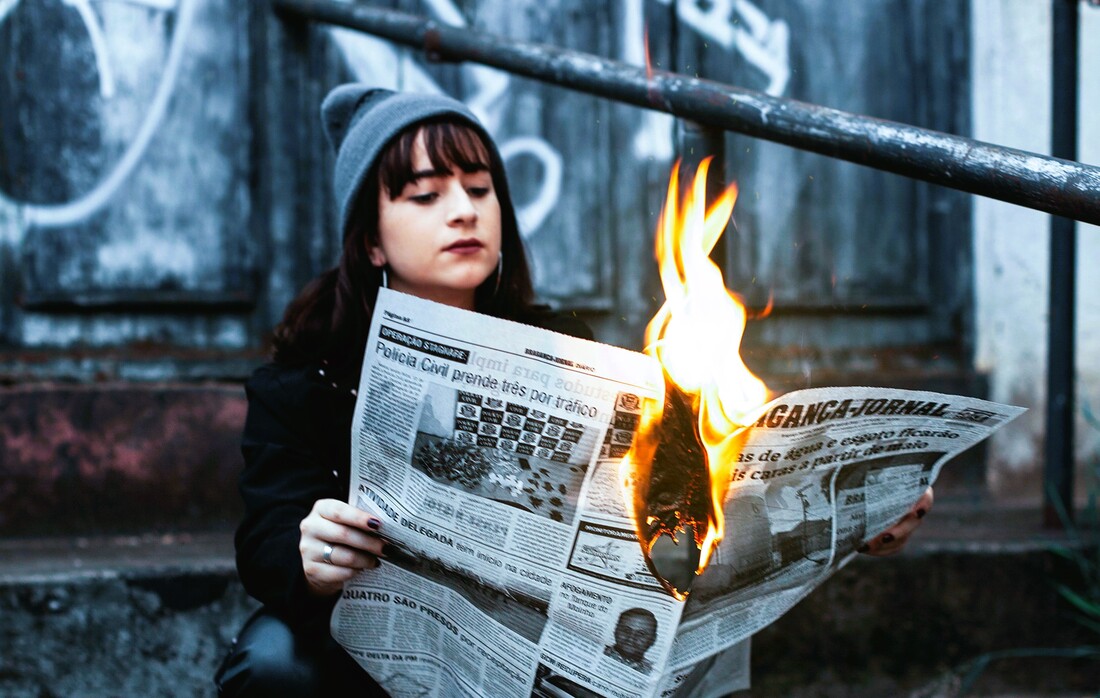
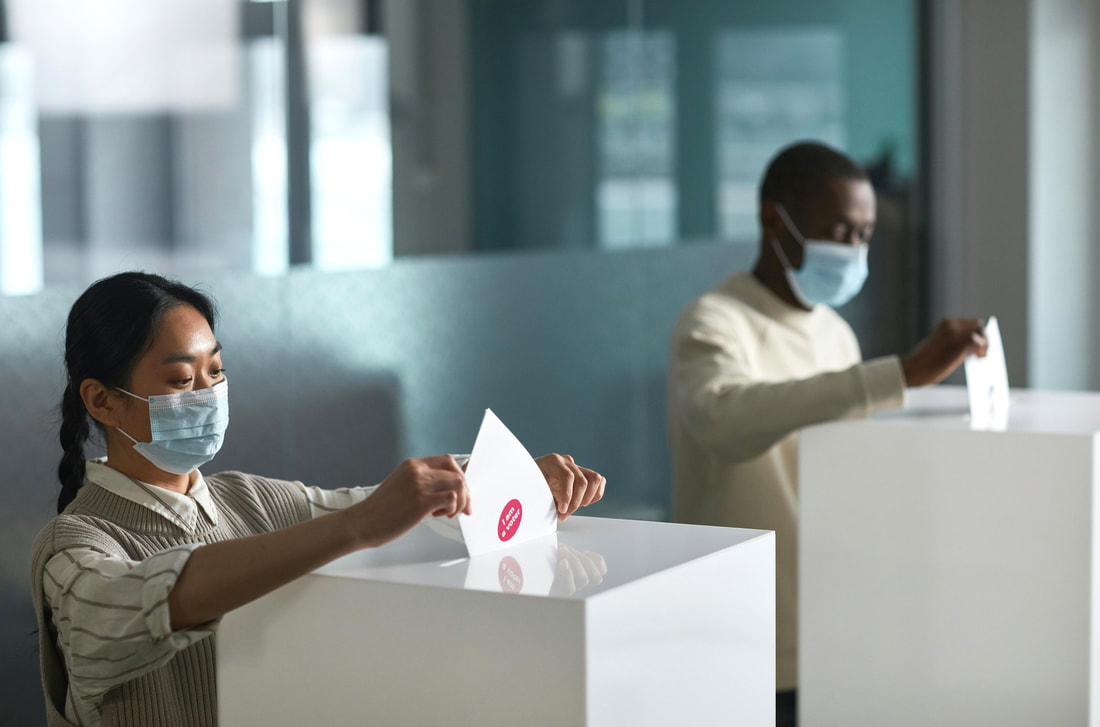
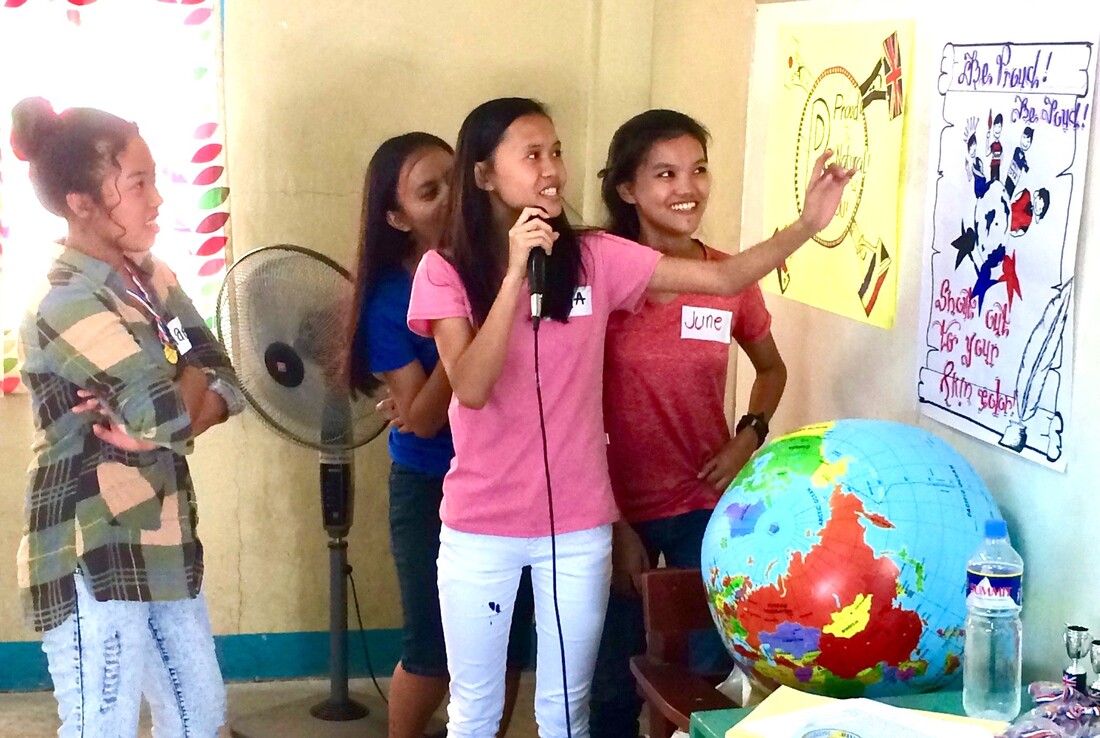
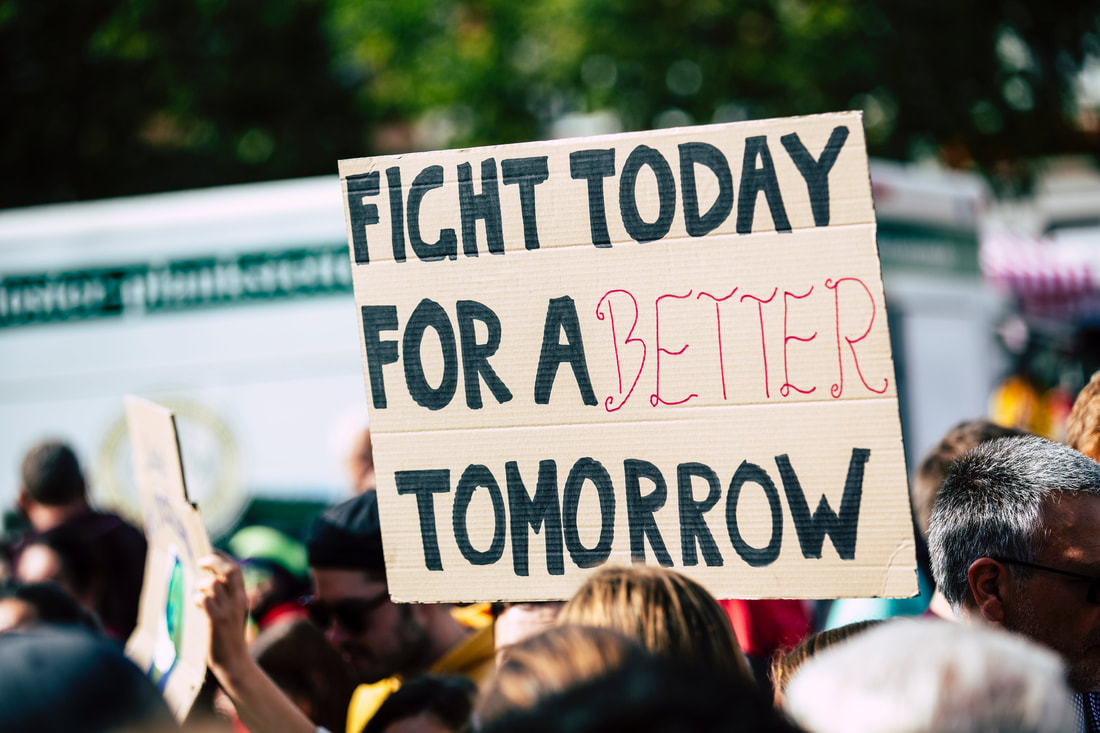
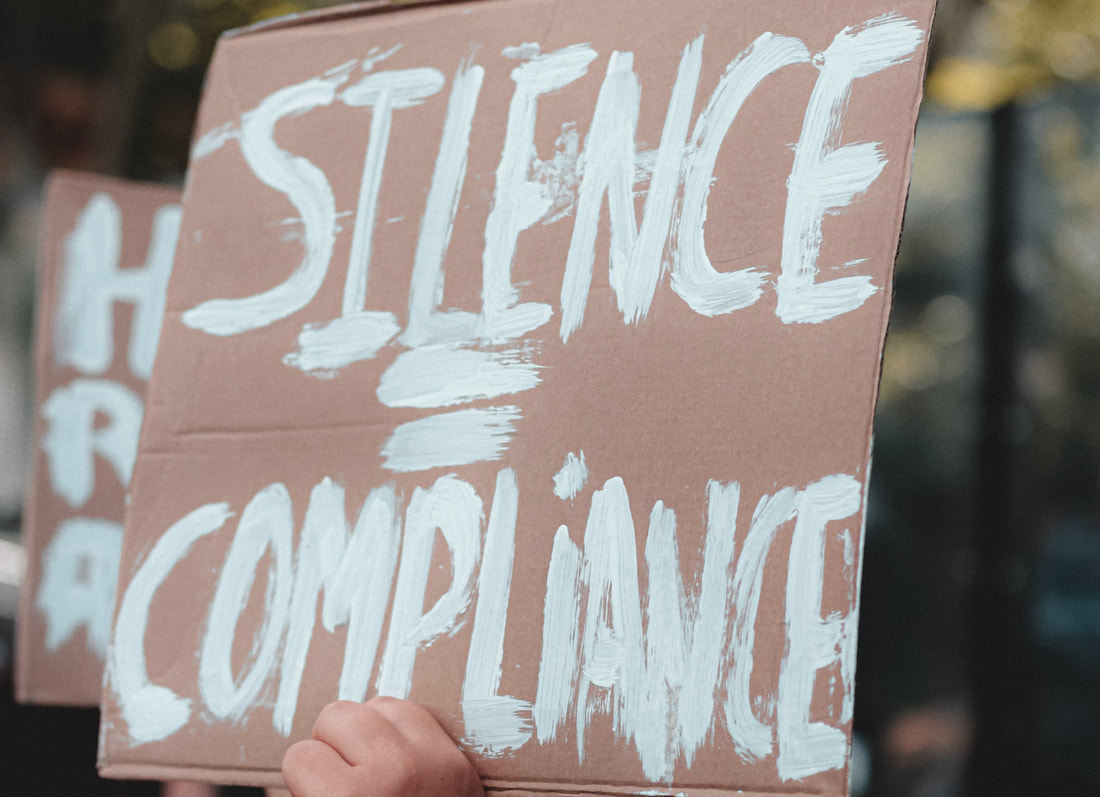
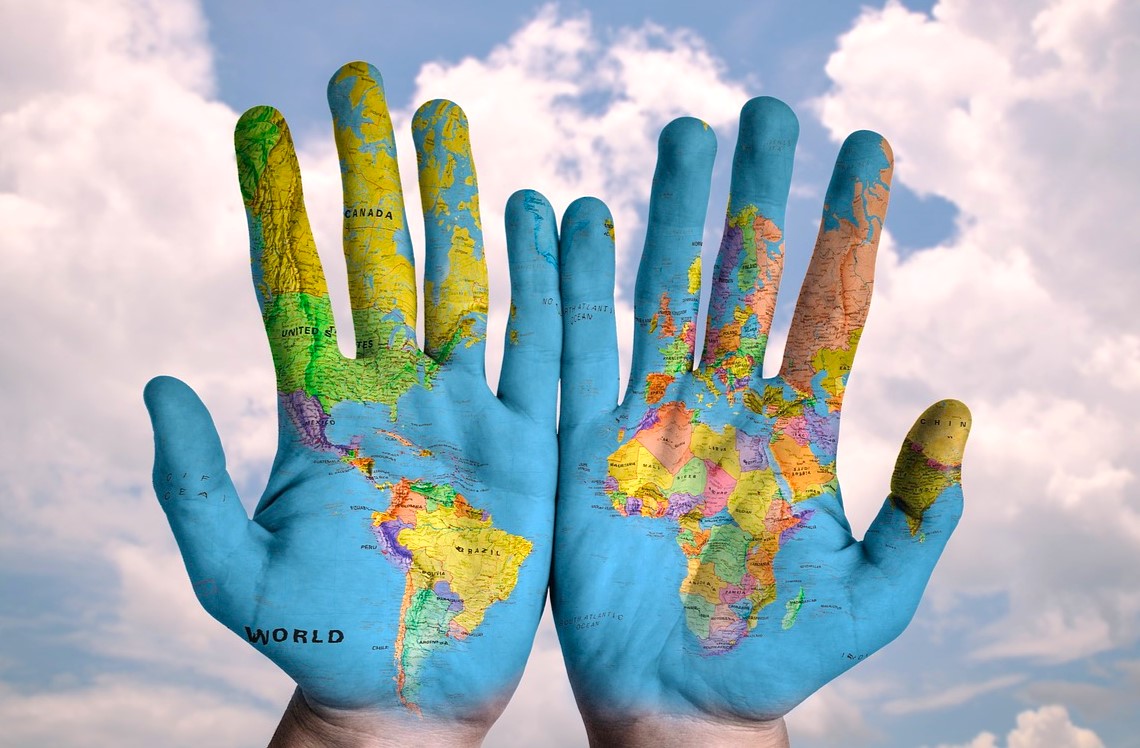
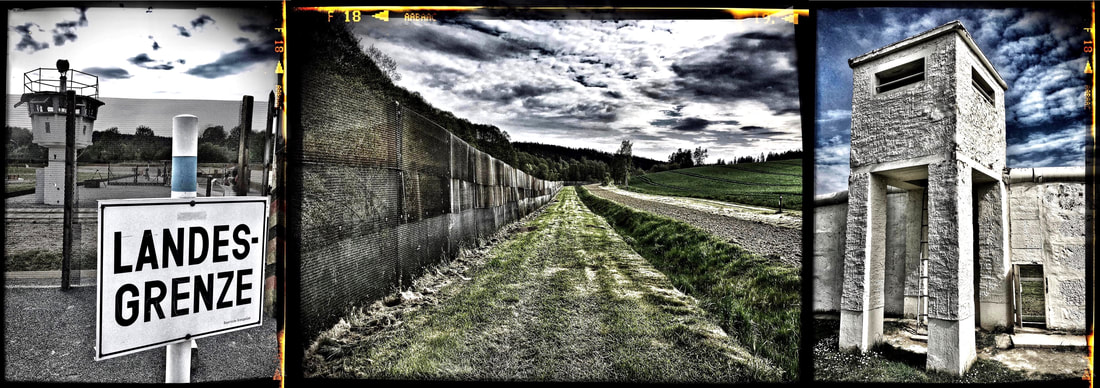
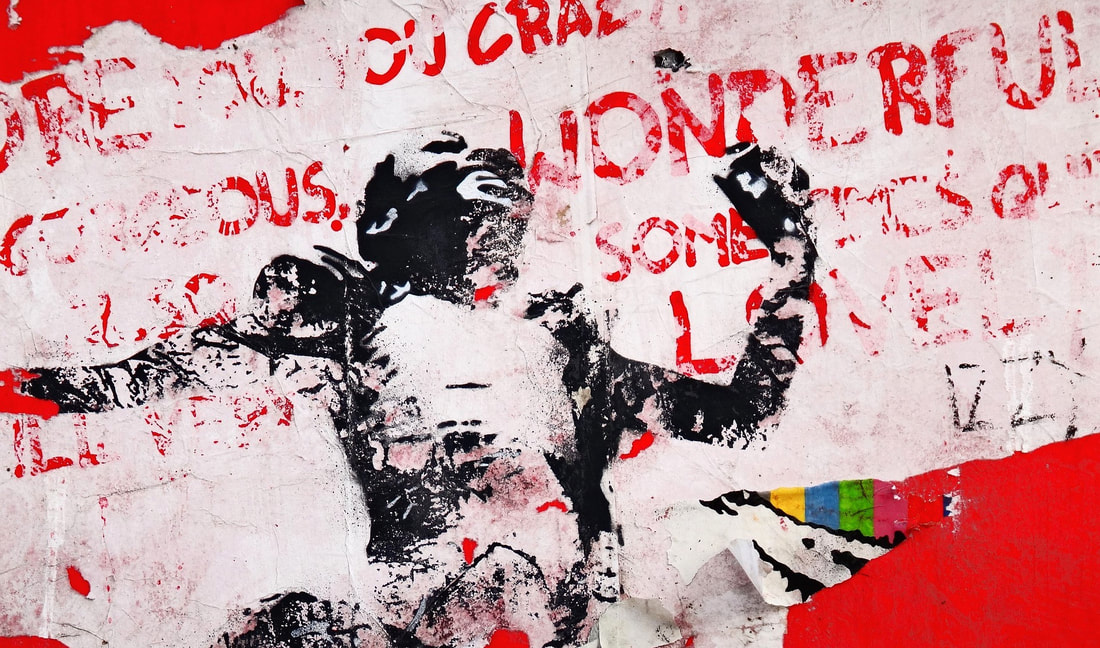
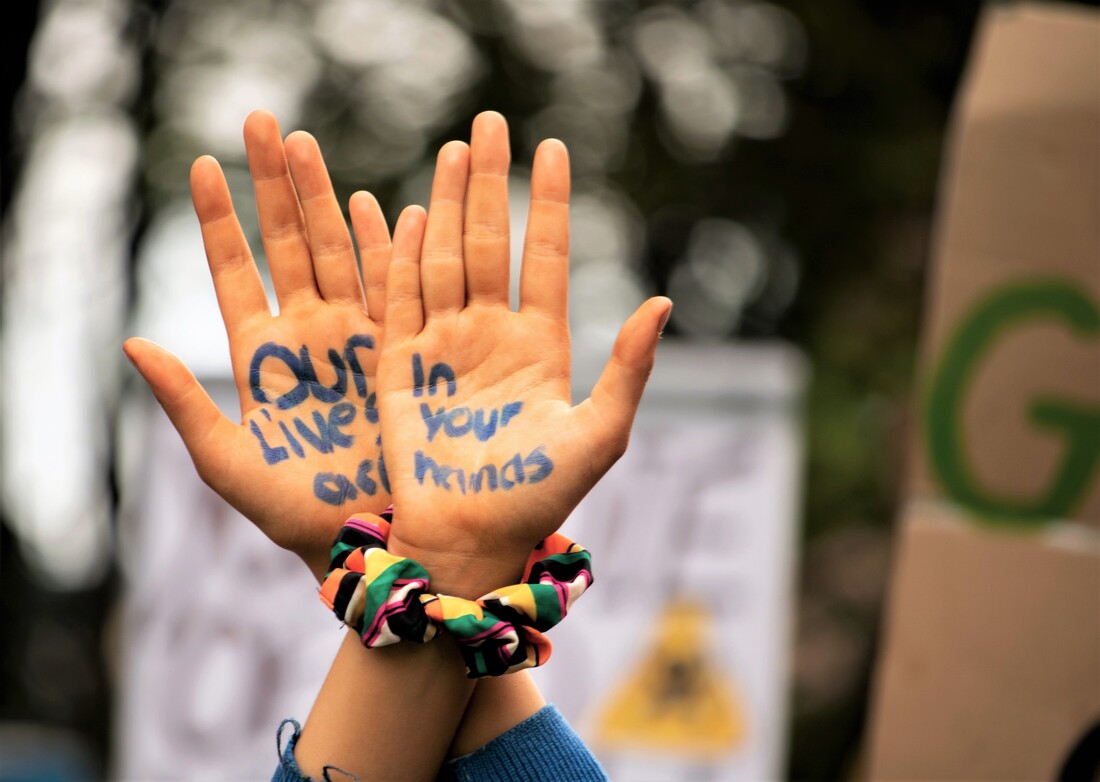



 RSS Feed
RSS Feed